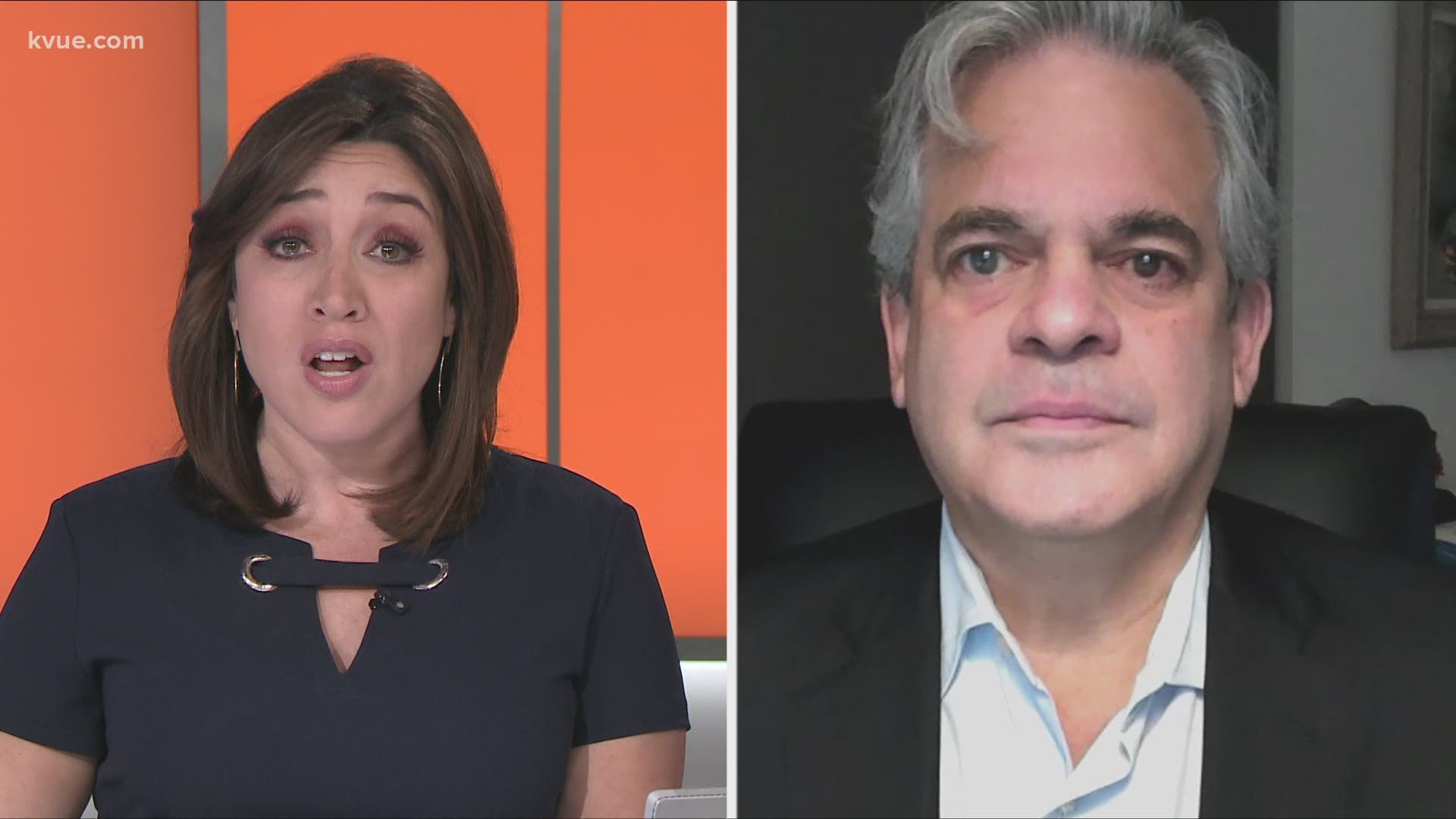AUSTIN, Texas — As Austin remains under Stage 5 COVID-19 guidelines, Mayor Steve Adler joined KVUE's Yvonne Nava Monday morning to discuss vaccine rollout, homelessness and other recent headlines.
Nava: Shouldn't there be a better way to report and enforce masking and social distancing at places like bars?
Adler: Well, it's easy to report. You just need to call 311 and code enforcement follows up on those. But the truth is that we don't have enough police officers or code officers or deputy sheriffs to enforce our way to compliance. This has got to be something that the community wants. And, frankly, what we've seen over the last couple of weeks is a change in behavior. We have more people that are wearing masks whenever they leave the home and around other people that they don't live with. And we need more of that. It's certainly not perfect. And we have continued to give citations out to enforce. But, ultimately, we need everybody doing their own part. And thus far, over the last couple of weeks, we've been doing better.
Nava: On Friday, health experts said that at this current rate, it could take months to vaccinate those in Austin and Travis County. So what do you have in mind to speed up this process? And also, have you received your vaccine yet?
Adler: I have not received my vaccine yet. I'll take it when they tell me that it's my turn. The biggest problem we have right now is supply. I know there are parts of the country that have gotten the vaccine and haven't managed to get it into people's arms. That's not our problem. Our challenge here in Travis County, every vaccine that comes in is getting put into someone's arms. And we're working through the numbers, have the capacity to deliver even greater number of vaccines than what we're delivering now. So we continue to lobby the state and the federal government, the [Joe] Biden administration, to get more supply out to us because we're ready and our partners here all over Travis County are ready to distribute more. It's a supply issue. And my hope is that the new administration makes good on their indications now that they're going to speed up the manufacture and supply of the vaccine, as well as maybe even approving some others so that we get more supply.
Nava: The Washington Post had a great article about big-name companies like Amazon, Starbucks, Walmart, teaming up with local governments and medical providers to get vaccines in more people's arms. Have you reached out, or have any of them reached out to Austin to kind of team up in efforts?
Adler: We have talked to different companies about doing that, and I think that's similar to the flu vaccine. Ultimately, we get to the place where you can get it at any drugstore, get it in any grocery store. Certainly, we could use, do it in other companies, too, in order to be able to get it out. But again, our concern isn't getting the supply we have into people's arms, right? Ours is, where is the supply? So there's no supply for us to give to local companies to have them help us right now, which is why we're lobbying the state, lobbying the federal government, to get us greater supply.
Nava: Gov. [Greg] Abbott has been very vocal on our homeless issue. He says Austin has to reinstate the ban on homeless camping or Texas will. And then you stated that returning to the camping ban is the worst mistake we could make. So my question is, why?
Adler: We have to do a better job of getting people out of tents and off our streets. But I do believe that going back to where we were is the worst possible choice we could make. Because if you just send people back to the streets, into the woods where they were before, you haven't done anything to end homelessness. You just hide it. When you hide it, it's going to continue to grow. And, eventually, it'll be of a scale that we really can't do anything about. But we have to do a better job of getting people out of the tents, we have to do a better job and change what we're doing so that we get more housing and the council is going to consider here in the next day or two this week additional motels that we had purchased. Certainly, COVID slowed it down. But we have to do a better job with emergency and rapid housing as well, maybe some of these mini homes or other kinds of things where we do a better job of managing the public spaces that should be shared.
PEOPLE ARE ALSO READING:

